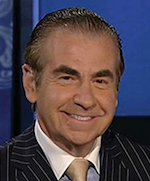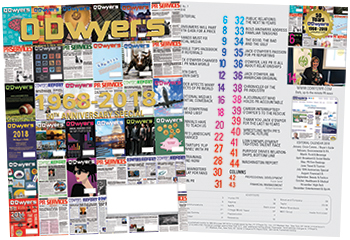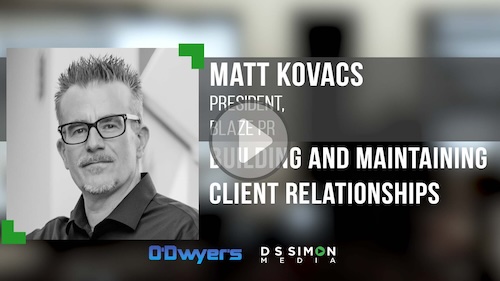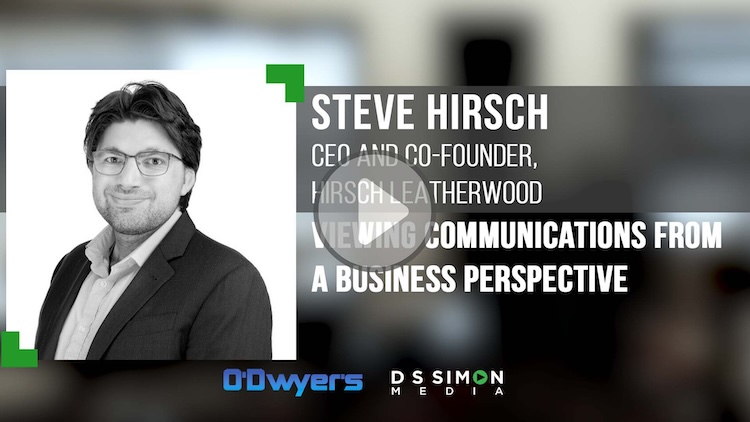 Fraser Seitel |
Fifty years ago, Jack O’Dwyer, a disheveled, slightly-unorthodox, former journalist right out of the Jimmy Breslin School of rough-and-tumble police reporting, started a newsletter to shine a bright light on the practice of public relations. (I originally met him because he was my baby sitter!)
Today, half a century later, the old curmudgeon is still at it, his light continuing to burn brightly, extolling the virtuous and exposing the fakers in our field.
Over the years, I’ve occasionally questioned Brother O’Dwyer’s viewpoint. (Who hasn’t?) But I never questioned the “O’Dwyer Principles of Public Relations” that he championed. Today, those three principles are just as relevant to public relations professionals as the day Jack adopted them some five decades ago. The only thing that’s changed, sadly, in this era of Donald Trump and pervasive polarization is the way the O’Dwyer Principles are — or more likely, aren’t — being adhered to.
|
|
Here’s the proof.
O’Dwyer principle #1: Always seek the truth
“The truth,” they say, shall “set you free.” In Jack’s case, the search for truth “set him loose” --- sometimes like a rabid dog digging for the facts. Many a public relations blowhard has been laid low by the wrath of the intrepid O’Dwyer trying to ferret out the facts in a confusing situation.
The lesson to public relations people, of course, is that the one cardinal rule of the practice must be that you should always tell the truth. Obviously, there are certain situations where the facts might not be in the client’s best interests to share. That’s when, rather than uttering untruths to protect the client, comment should be avoided; whether inquiring minds like it or not.
Lying, rightfully argues Jack, is an action of which public relations people should never be guilty. All you have, he says, is your reputation, your integrity. Once you lose that, you’ve lost your credibility. And he’s right.
Today, of course, truth has become a perilous commodity. With partisans throughout society who selectively pick and choose their own “facts,” media which purposely slant theirs and politicians from the president on down who don’t think much about them, the pervasiveness of truth-telling has taken a body blow.
No matter. In public relations, if you lie, you lose. And that’s true whether your boss commands you to lie about the size of his inauguration crowd being “the largest in history” or lie about how a tax cut that returns thousands of dollars to middle class Americans is “bad for the American people.”
If one is to be respected in the practice of public relations, you can never lie; the O’Dwyer Principle must abide.
O’Dwyer principle #2: Always speak your mind
Anyone who has suffered the misfortune to run afoul of an O’Dwyer verbal exchange — whether in the form of a question at a conference, a dialogue between editor and reporter or a dispute on the A train bound for Brooklyn — understands how religiously Jack O’Dwyer practices this principle.
So, too, must public relations advisers speak their own minds, not only when invited by their clients to counsel but also when not invited. Your responsibility as a public relations consultant is to speak up loudly and clearly to proffer ethical counsel in the client’s best interest; whether or not that client wants to hear it. That’s the reason you’re paid.
Whether or not you support Donald Trump, it’s inarguable that perhaps this President’s most glaring weakness is his failure to seek out and listen to advice. He seems to feel he is the smartest guy in the room and can do it all himself. That’s why he chose first, an unqualified Anthony Scaramucci to be his communications director and then, an inexperienced Hope Hicks to replace the Mooch. Neither one carried the credentials for the position, but Trump wasn’t interested in seeking honest counsel so both were fine. Predictably, now that his two friends were driven out, the White House communications director job lingers unfilled.
The fact is Trump doesn’t want an adviser who fits the O’Dwyer Principle, and no self-respecting public relations professional, therefore, would take the job without being allowed to speak his or her mind.
O’Dwyer principle #3: Always respond to the media
As a grizzled newspaper veteran of the old New York Journal-American and Chicago Tribune and then as the righteous editor of O’Dwyer’s Newsletter, Jack O’Dwyer has always crusaded for the obligation of public relations people to speak to the media.
In Jack’s mind, every public relations person must treat the First Amendment as sacrosanct, and that means responding to journalist inquiries, no matter how unpleasant. Over time, as many in the media have become more partisan and less fair-minded, even the most respected public relations professionals have wavered on following this O’Dwyer Principle. The late great Gershon Kekst, for example, one of the field’s most successful practitioners, was known to counsel his clients to speak to the press only when it served their interests.
Today, of course, this O’Dwyer Principle is under assault, as much due to overt media bias as to reluctant public relations professionals. When the New York Times, the world’s traditional “paper of record,” carries a front page story that proclaims Donald Trump’s first 17 months in office as “an exercise in futility,” it’s little wonder why at least half the country concludes the mainstream media is so anti-Trump that it can no longer be trusted to be fair.
Accordingly, increasing numbers of public relations professionals in business, government and agencies think twice about returning a call to a reporter that may well lower the boom on them, whether deserved or not. And this O’Dwyer Principle becomes that much more difficult to heed.
While these may, indeed, be confusing and perilous times for the practice of public relations and the values that have sustained the field over its first 100 years, public relations professionals must, by nature, be optimists; secure in the knowledge that the time-honored principles that have driven the field’s most fearless fighter over half a century of revelatory reporting will once again emerge victorious.
***
Fraser P. Seitel has been a communications consultant, author and teacher for 40 years. He is author of the Pearson text “The Practice of Public Relations,” now in its 13th edition, and co-author of “Rethinking Reputation" and "Idea Wise.” He may be reached directly at [email protected].











 Have a comment? Send it to
Have a comment? Send it to 
No comments have been submitted for this story yet.